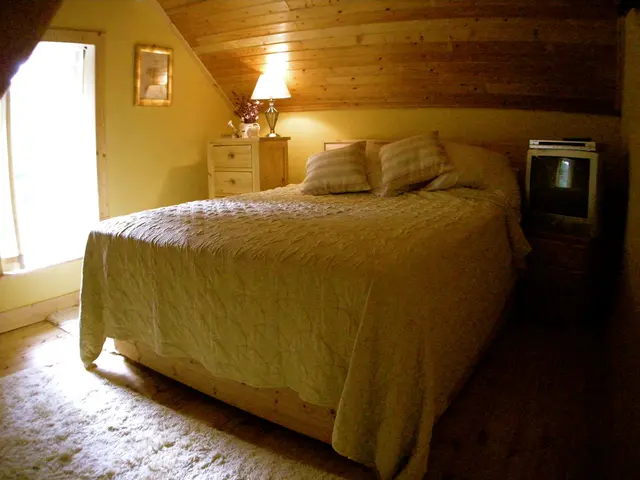Investment in social housing by charities could potentially generate billions for the economy
In the realm of UK housing policy, a significant proposal has emerged that could bring about substantial economic benefits and savings for taxpayers, the National Health Service (NHS), and housing benefits. The proposal, championed by both the National Housing Federation (NHF) and Shelter, suggests the construction of 90,000 social homes annually.
This ambitious target, if achieved, would not only address the current housing crisis but also generate a host of wider economic advantages. According to research commissioned by Shelter and the NHF, such a move could potentially save the NHS up to £50 million per year and yield a total annual saving of approximately £6 billion for the wider public purse.
One key aspect of these benefits lies in reduced healthcare costs. The Local Government Association (LGA) has highlighted that the shortage of supported housing currently costs the NHS £71 million due to delayed hospital discharges, particularly those related to mental health. By increasing supported social housing, this issue can be mitigated, providing stable accommodation for vulnerable populations and reducing demand on health services.
Another significant area of savings comes from housing benefits. Social housing tends to be more affordable and stable compared to private rental markets, reducing reliance on housing benefits subsidies. The LGA suggests that reform and expansion could help councils avoid being "millions of pounds out of pocket" under current subsidy rules and lower housing benefit spending across the system.
The long-term public cost reductions are another key benefit. Investment in social homes supports vulnerable groups such as people with disabilities, those at risk of homelessness, and care leavers, which can reduce usage of expensive emergency services and social care.
Economic multiplier effects are also anticipated as a result of this investment. Although specific multiplier figures were not found, government commitments like the £39 billion Social and Affordable Homes Programme to deliver 300,000 homes over the next decade indicate significant economic stimulus through construction, job creation, and increased housing supply, which could help stabilize rents.
Energy efficiency gains are also expected. Upgrading social housing stock via programs like the Social Housing Decarbonisation Fund improves energy performance, lowering fuel poverty and associated health issues, indirectly reducing the NHS burden.
Moreover, this proposal would generate income from employment taxes, construction taxes, and savings from reducing homelessness. It would also help revitalize the UK construction sector, currently in a downturn, as indicated by figures from Glenigan's latest index for the three months to the end of October 2023.
Communities, too, would benefit as people would no longer be priced out of their local areas, leaving behind jobs, children's schools, and support networks, as emphasized by Polly.
In conclusion, building 90,000 social homes each year aligns with the UK government's multi-billion-pound housing investment plans and is forecast to contribute large direct savings in housing benefits and NHS spending, alongside broader economic benefits through enhanced social stability and local economic activity. Both the NHF and Shelter are urging political parties to commit to ending the housing crisis ahead of the next general election.
Read also:
- Developing a Sales Strategy: Methods, Sample Plans, and Templates for Sales Plans
- Events that transpired on the night of August 13, 2025.
- Manchester-based entrepreneur Amman Ahmed propelled an unusual venture to an 8-digit empire, without external financing. This is the story of how he crafted a groundbreaking genre in the world of animal-oriented media, one growl and rhythm at a time.
- Cooking Quantity of Beef Corresponds to Citizens' Salaries - Analysts Disclose








